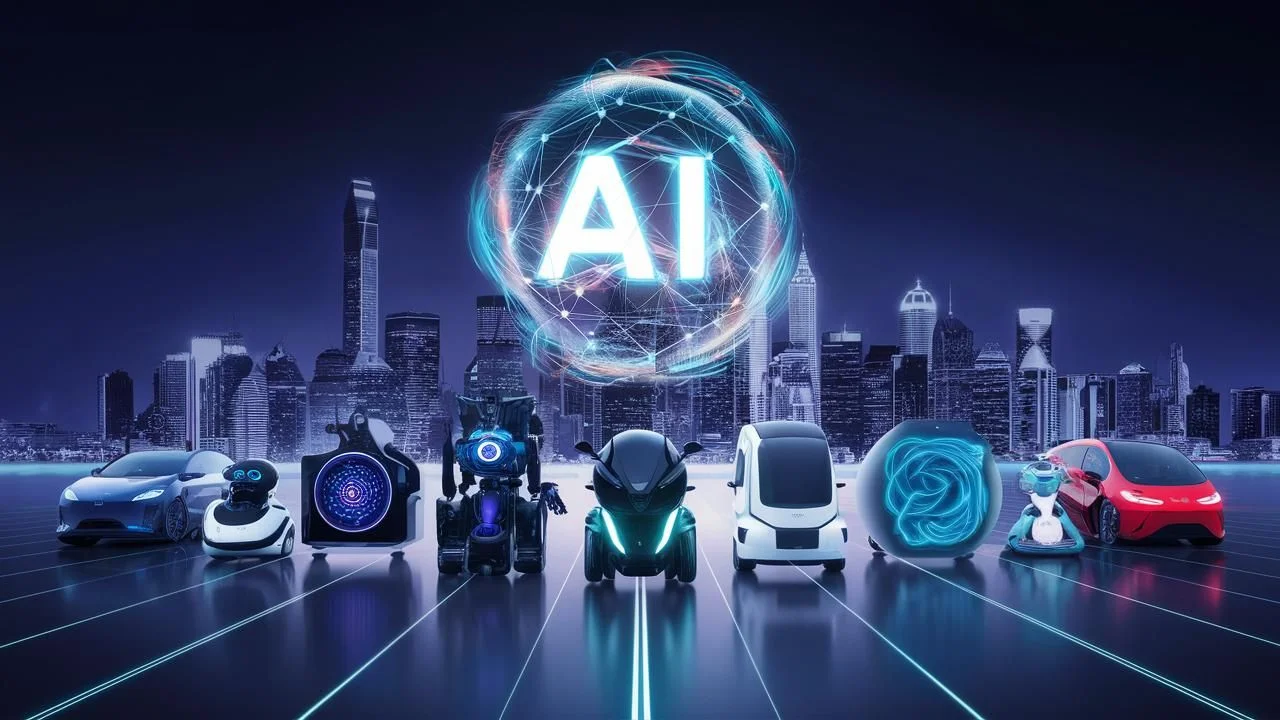Discover 10 groundbreaking AI innovations shaping the future of technology. Explore how AI is transforming healthcare, transportation, climate change, education, and more. Learn about the latest advancements and their impact on our lives.

Artificial Intelligence (AI) is no longer just a sci-fi fantasy; it’s here, making waves across various aspects of our lives. With AI’s rapid growth, it’s transforming everything from how we manage our health to how we enjoy our entertainment. In this blog, we’ll explore ten groundbreaking AI innovations that are set to shape our future and make our lives better.
Imagine a world where doctors can predict your health needs before you even show symptoms. That’s the promise of AI in healthcare:
| AI Innovation | Description | Example |
|---|---|---|
| Precision Medicine | Tailored health treatments | IBM Watson Health |
| Drug Discovery | Faster development of drugs | DeepMind, Insilico Medicine |
| Medical Imaging | Accurate image analysis | Google’s DeepMind |
| Robotic Surgery | Precise surgical assistance | da Vinci Surgical System |
Traveling is becoming smarter and more efficient thanks to AI. Here’s how:
| AI Innovation | Description | Example |
|---|---|---|
| Autonomous Vehicles | Self-driving technology | Tesla, Waymo, Uber |
| Traffic Management | AI for managing traffic flow | Los Angeles AI-driven systems |
| Drone Delivery | Quick delivery via drones | Amazon, Zipline |
| Predictive Maintenance | Proactive infrastructure care | Global adoption |
AI isn’t just about tech; it’s also helping save our planet:
| AI Innovation | Description | Example |
|---|---|---|
| Climate Modeling | Predicting climate changes | IBM Green Horizons |
| Renewable Energy | Optimizing energy production | Google’s DeepMind |
| Smart Agriculture | Efficient farming practices | John Deere AI-powered tractors |
| Disaster Management | Planning for natural disasters | Global applications |
Learning is getting a high-tech makeover with AI:
| AI Innovation | Description | Example |
|---|---|---|
| Personalized Learning | Tailored education experiences | Khan Academy |
| AI Tutoring | On-demand academic assistance | Carnegie Learning |
| Content Creation | Curated educational materials | Coursera |
| Accessibility Tools | Support for students with disabilities | Microsoft’s Seeing AI |
AI is streamlining business operations and financial services:
| AI Innovation | Description | Example |
|---|---|---|
| Automation | Streamlining repetitive tasks | UiPath, Automation Anywhere |
| Customer Service | AI-driven support | Bank of America’s Erica |
| Fraud Detection | Identifying suspicious activity | PayPal, Mastercard |
| Algorithmic Trading | Optimizing investment strategies | Hedge funds, investment firms |
AI is changing how we enjoy ourselves:
| AI Innovation | Description | Example |
|---|---|---|
| Generative AI | Creating new content | OpenAI’s GPT-3, AIVA |
| VR/AR Experiences | Enhancing immersive tech | Oculus, Magic Leap |
| Personalized Recommendations | Tailored content suggestions | Netflix, Spotify |
| Interactive Gaming | Dynamic and engaging gameplay | “Middle-earth: Shadow of Mordor” |
As we embrace AI, it’s important to navigate its ethical challenges:
| Ethical Challenge | Description | Example |
|---|---|---|
| Bias and Fairness | Ensuring unbiased AI | Fairness in algorithm design |
| Job Displacement | Managing workforce changes | Retraining initiatives |
| AI Safety | Preventing misuse and attacks | Securing AI systems |
| Privacy Concerns | Protecting personal data | Compliance with regulations |
AI is more than just a technological trend; it’s a powerful force shaping the future of many aspects of our lives. From healthcare to entertainment, AI is enhancing our experiences and making the world more connected and efficient. As we navigate this exciting landscape, let’s remain mindful of the ethical considerations and work together to ensure that AI benefits everyone.
Stay curious and informed about AI. Engage with the latest research, participate in discussions, and think about how these innovations might impact you. By staying engaged, you can be part of shaping a future where AI
Subscribe and get 3 of our most templates and see the difference they make in your productivity.
Includes: Task Manager, Goal Tracker & AI Prompt Starter Pack
We respect your privacy. No spam, unsubscribe anytime.